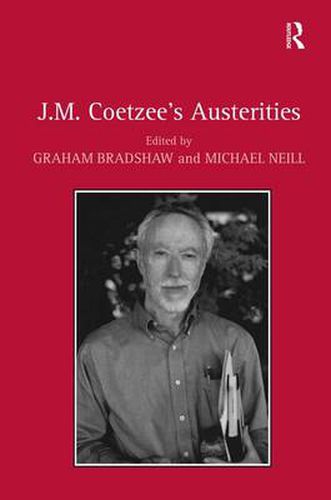Readings Newsletter
Become a Readings Member to make your shopping experience even easier.
Sign in or sign up for free!
You’re not far away from qualifying for FREE standard shipping within Australia
You’ve qualified for FREE standard shipping within Australia
The cart is loading…






Representing a wide range of critical and theoretical perspectives, this volume examines J.M. Coetzee’s novels from Dusklands to Diary of a Bad Year. The choice of essays reflects three broad goals: aligning the South African dimension of Coetzee’s writing with his late modernist aesthetic; exploring the relationship between Coetzee’s novels and his essays on linguistics; and paying particular attention to his more recent fictional experiments. These objectives are realized in essays focusing on, among other matters, the function of names and etymology in Coetzee’s fiction, the vexed relationship between art and politics in apartheid South Africa, the importance of film in Coetzee’s literary sensibility, Coetzee’s reworkings of Defoe, the paradoxes inherent in confessional narratives, ethics and the controversial politics of reading Disgrace, intertextuality and the fictional self-consciousness of Slow Man. Through its pronounced emphasis on the novelist’s later work, the collection points towards a narrato-political and linguistic reassessment of the Coetzee canon.
$9.00 standard shipping within Australia
FREE standard shipping within Australia for orders over $100.00
Express & International shipping calculated at checkout
Representing a wide range of critical and theoretical perspectives, this volume examines J.M. Coetzee’s novels from Dusklands to Diary of a Bad Year. The choice of essays reflects three broad goals: aligning the South African dimension of Coetzee’s writing with his late modernist aesthetic; exploring the relationship between Coetzee’s novels and his essays on linguistics; and paying particular attention to his more recent fictional experiments. These objectives are realized in essays focusing on, among other matters, the function of names and etymology in Coetzee’s fiction, the vexed relationship between art and politics in apartheid South Africa, the importance of film in Coetzee’s literary sensibility, Coetzee’s reworkings of Defoe, the paradoxes inherent in confessional narratives, ethics and the controversial politics of reading Disgrace, intertextuality and the fictional self-consciousness of Slow Man. Through its pronounced emphasis on the novelist’s later work, the collection points towards a narrato-political and linguistic reassessment of the Coetzee canon.